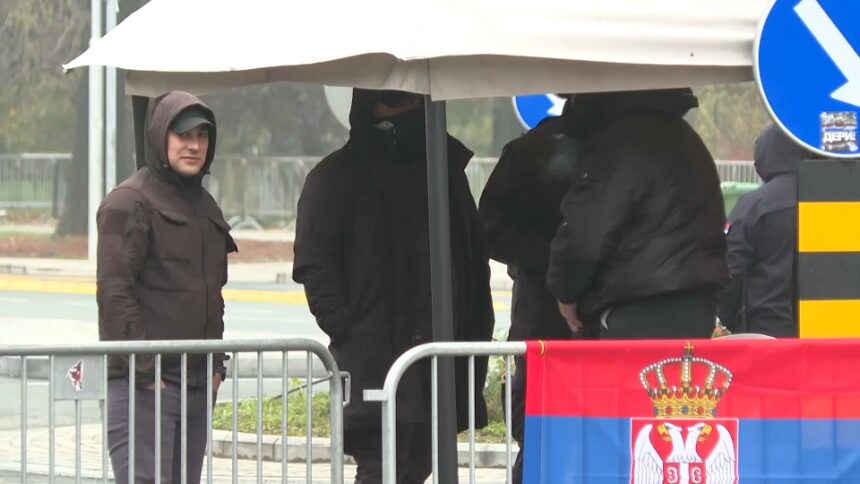The fenced-off tent settlement in front of the National Assembly of Serbia, known as Ćacilend, now includes a registration desk where guards determine who is allowed to enter the area and who is not. This move has sparked public outrage, particularly among citizens with disabilities, for whom access in Belgrade is already severely limited.
Located on Nikola Pašić Square, near the new roundabout, the fence and registration system restricts movement for all pedestrians who are not members or affiliates of the Serbian Progressive Party (SNS).
According to an N1 reporter, two men approached her while she was reporting and stated that she could not film the registration desk, the guards, or people entering Ćacilend, but filming the surrounding pavement and the National Assembly building was allowed.
Some citizens, holding a white piece of paper, were allowed entry after approaching the registration desk.
Vladimir Šupeljak, an elderly man in a wheelchair, recounted a recent incident when he tried to reach the Main Post Office through the city center.
“Some obscure person demanded a ‘permit’ from me. After insisting, he communicated over radio with someone else, presumably getting authorization from a superior. I was eventually allowed to pass, but I also noticed a police patrol that did nothing about this restriction, even though I asked if it was legal for unmarked individuals to limit movement in the city center,” he said.
Vladimir called the restriction unimaginable and discriminatory, noting that Belgrade is fundamentally not adapted for people with disabilities.
“We already face major obstacles navigating the sidewalks. I need to pass here because the Main Post Office is the only one in the Old Town I can access. This is also the shortest and safest route, considering the poor condition of the sidewalks,” he added.
This situation highlights how access to public spaces in Belgrade is increasingly controlled for political reasons, raising serious concerns about freedom of movement and inclusivity, especially for vulnerable citizens.







